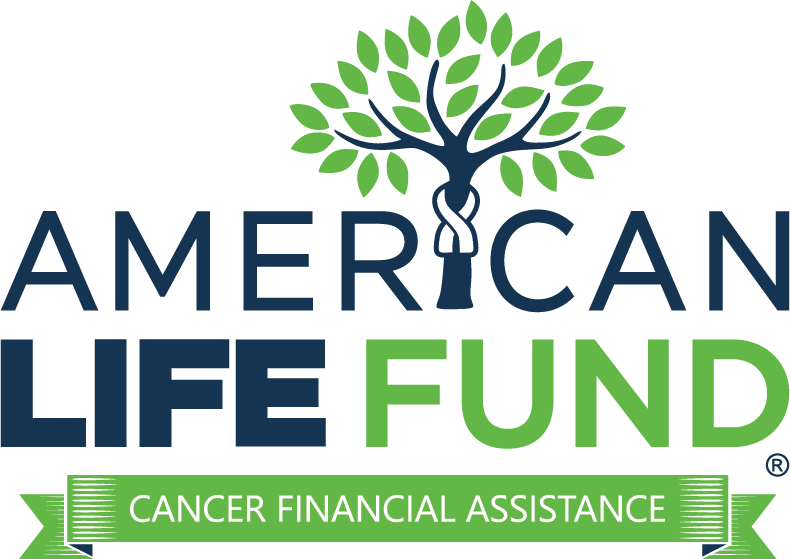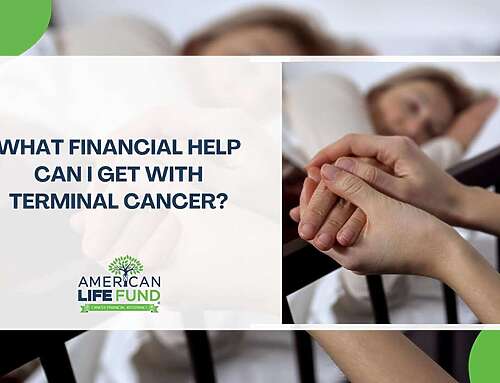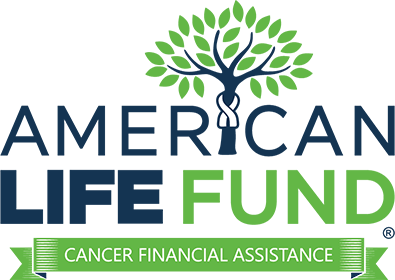A cancer diagnosis is more than a medical condition—it’s a life-altering moment filled with difficult decisions, uncertainty, and the relentless search for hope. For many patients, conventional treatments like chemotherapy, radiation, and surgery offer the best chance of remission. But what happens when those options fail, or when the side effects feel unbearable?
Imagine being told that your cancer is untreatable, that you have exhausted all standard medical options. Or perhaps you’re watching a loved one struggle through the nausea, fatigue, and pain of aggressive treatments that seem to be doing more harm than good. In moments like these, many turn to alternative cancer treatments, seeking therapies that promise a gentler, more holistic approach.
Mexico has become a global destination for patients exploring these alternatives. Clinics in Tijuana, Cancun, and Baja California offer treatments that range from metabolic therapy and immunotherapy to hyperthermia and stem cell treatments—many of which are not available or approved in the U.S. Some patients see these clinics as a second chance, a place where healing is approached differently. Others are drawn by experimental treatments, personalized care, or the hope of fewer side effects.
While some offer legitimate, science-backed therapies, others operate in a gray area—making bold claims without real evidence. How can you tell the difference between hope and hype? Between a cutting-edge treatment and a risky gamble?
This guide will walk you through the best-known alternative cancer treatment centers in Mexico, the therapies they offer, and the critical factors to consider before making a decision. Whether you’re a patient seeking options, a caregiver searching for answers, or simply exploring possibilities, this article will help you navigate the world of alternative cancer care with clarity, confidence, and caution.
What Are Alternative Cancer Treatments?
Alternative cancer treatments refer to non-conventional therapies that some patients use alongside or instead of conventional treatments like chemotherapy and radiation that are found in the States. These treatments focus on different approaches to target cancer cells, strengthen the immune system, and improve overall well-being.
Some of the most popular treatments include:
- Immunotherapy: Uses the body’s immune system to fight cancer. Some alternative clinics offer experimental immunotherapy not yet approved in the U.S.
- Hyperthermia Therapy: Exposes the body or specific tumors to high temperatures, which some believe can weaken or destroy cancer cells.
- Metabolic Therapy: Focuses on changing the body’s internal environment to slow or stop cancer growth, often using dietary supplements, detoxification, and specialized nutrition plans like Gerson therapy.
- Cellular Therapy: Uses regenerative medicine techniques, such as stem cell therapy, to help repair damaged tissues and support the body’s natural healing process.
- Bowel Cleansing & Detoxification: Some alternative medicine approaches emphasize bowel cleansing and liver detox protocols as a way to remove toxins and support cancer care.
What Are the Benefits and Risks of Alternative Cancer Treatments?
For some cancer patients, alternative cancer treatments provide an option that focuses on whole-person healing, aiming to improve quality of life and minimize the harsh effects of conventional care. However, these treatments also come with potential risks, especially when used in place of proven therapies.
Potential Benefits:
- Reduced Side Effects: Some patients seek alternative cancer therapy to avoid the nausea, fatigue, and pain often associated with chemotherapy and radiation.
- Emotional and Spiritual Support: Many alternative clinics offer personalized treatment plans that include spiritual support, counseling, and meditation to help patients cope with their diagnosis.
- Holistic Approach: Some therapies aim to treat the whole person, not just the disease, by improving immune system function, reducing stress, and supporting overall health.
- Additional Treatment Options: Some new treatments, such as experimental immunotherapy, may not be available in standard cancer care but are offered in alternative clinics.
Potential Risks:
- Lack of Scientific Evidence: While some treatments show promise, others have little to no backing from public health organizations or major cancer research institutions.
- Delaying Proven Treatments: Some patients may forego conventional treatments, which could reduce the chances of remission or long-term survival.
- High Treatment Costs: Many alternative medical treatments are not covered by insurance, requiring patients to pay out of pocket.
- Questionable Cancer Practices: Some quack clinics use aggressive marketing tactics, promising to cure cancer without providing real medical evidence.
Before pursuing alternative medicine, it’s important to weigh the benefits and risks. Consulting with a trusted medical professional and thoroughly researching alternative cancer providers can help guarantee the safest approach to cancer care.
What Are the Top Cancer Treatment Centers in Mexico?
Mexico has become a well-known destination for cancer patients seeking alternative cancer treatments. Many alternative clinics provide a mix of conventional care and complementary and alternative medicine, aiming to offer personalized treatment plans and holistic healing approaches.
Oasis of Hope: A Leading Alternative Cancer Center
One of the most well-known alternative cancer providers in Mexico is Oasis of Hope, located in Tijuana. This center has been treating patients for decades, offering a combination of alternative therapies and some conventional treatments.
Treatments Offered at Oasis of Hope:
- Metabolic Therapy – Focuses on altering the body’s internal environment to slow cancer growth.
- Gerson Therapy – A strict diet-based approach that includes massive doses of organic juices, supplements, and coffee enemas.
- Experimental Immunotherapy – Aims to strengthen the immune system to fight cancer cells naturally.
- Emotional and Spiritual Support – Provides counseling, support groups, and holistic healing to treat the whole person.
Many patients have shared positive experiences at Oasis of Hope, but as with any medical decision, it’s important to research clinics, request medical records, and consult trusted professionals before seeking treatment.
How Can You Evaluate Cancer Treatment Centers in Mexico?
When seeking alternative cancer treatments, choosing the right cancer treatment center is critical. While some alternative clinics offer genuine personalized treatment plans, others may engage in questionable cancer practices or make misleading claims. Doing thorough research can help patients find a trustworthy facility while avoiding quack clinics.
Factors to Consider When Researching Clinics:
- Medical Credentials & Ethics Approval: Make sure that the clinic’s doctors have legitimate medical training and credentials. Look for affiliations with respected health sciences organizations.
- Treatments Offered: Reputable clinics will provide clear explanations of their treatment options and how they work, rather than vague promises to cure cancer.
- Transparency in Medical Records & Patient Data: A reliable center should have a structured medical questionnaire and a process for documenting progress.
- Patient Testimonials & Third-Party Reviews: While testimonials can be helpful, be cautious of overly sensational claims or stories that seem too good to be true. Look for independent sources and reviews from patients with similar conditions.
- Cost Transparency & Payment Options: Legitimate clinics will clearly outline treatment costs and available payment options instead of pressuring patients into expensive, upfront commitments.
Red Flags to Watch Out For:
- Miracle Cure Claims – If a clinic guarantees they can cure cancer, proceed with caution. No treatment, alternative or conventional, can promise a cure.
- High-Pressure Sales Tactics – Be wary of clinics that push you to make quick financial decisions or discourage you from considering conventional care.
- Lack of Ethics Approval or Research Backing – Reputable centers often collaborate with medical institutions or conduct health research to improve their treatments. If a clinic has no published studies or affiliations, that’s a red flag.
- Unclear Treatment Methods – A trustworthy clinic should explain its alternative medical treatments in detail, not just sell hope.
How Much Do Alternative Cancer Treatments in Mexico Cost?
For many cancer patients seeking alternative care, treatment costs are a major concern. While some alternative clinics promote their services as more affordable than conventional care in the U.S., the actual expenses can vary widely depending on the treatments offered, length of stay, and personalized treatment plan.
Factors That Affect Treatment Costs:
- Type of Treatment: More intensive therapies, such as experimental immunotherapy or cellular therapy, tend to be more expensive than dietary supplements or holistic detox programs.
- Clinic Reputation & Location: Well-known facilities like Oasis of Hope may have higher costs due to their experience and established patient success rates.
- Length of Stay & Support Services: Some clinics require extended stays for treatment, which can add costs for accommodation, medical records management, and ongoing care.
- Additional Therapies & Supplements: Many centers offer optional alternative cancer therapy add-ons, including metabolic therapy, bowel cleansing, and high-dose vitamin infusions, which can increase expenses.
Cost Breakdown of Alternative Cancer Treatments in Mexico (2024)
| Treatment Type | Estimated Cost | Notes |
| Experimental Immunotherapy | $25,000 – $50,000+ | Includes dendritic cell therapy, NK cell therapy, and peptide-based vaccines. Typically not FDA-approved in the U.S. |
| Cellular Therapy (Stem Cell Therapy, Regenerative Medicine) | $20,000 – $40,000+ | Costs depend on whether stem cells are autologous (from the patient) or allogeneic (from donors). Some clinics charge extra for boosters. |
| Metabolic Therapy (e.g., Gerson Therapy, Ketogenic Diet Protocols) | $10,000 – $25,000 | Includes strict organic diets, detoxification, and IV vitamin therapy. Typically part of multi-week inpatient programs. |
| Hyperthermia Therapy (Localized or Whole-Body) | $5,000 – $15,000 per cycle | Some clinics charge per session (~$1,000–$3,000 each), while others bundle it in full treatment plans. |
| Bowel Cleansing & Detoxification | $3,000 – $8,000 | Includes coffee enemas, colon hydrotherapy, and liver detox regimens. Often added to larger treatment plans. |
| High-Dose Vitamin C & IV Therapy | $5,000 – $12,000 per treatment cycle | Typically involves megadoses of Vitamin C, B17 (Laetrile), or ozone therapy. Requires multiple sessions. |
| Oxygen Therapy (Hyperbaric Oxygen, Ozone Therapy, EWOT) | $8,000 – $18,000 | Often used in combination with IV vitamin therapy and detox treatments. |
| Photodynamic Therapy (PDT) | $10,000 – $20,000 | Involves light-activated compounds targeting cancer cells. Available at select clinics. |
| Personalized Treatment Plans (Comprehensive Packages) | $25,000 – $60,000+ | Includes multiple therapies, extended stays (3–6 weeks), doctor consultations, lodging, and personalized nutritional plans. |
Insurance & Payment Options:
Most alternative cancer treatments in Mexico are not covered by insurance, requiring patients to pay out-of-pocket. However, some clinics offer:
- Payment Plans & Financing Options – Some alternative cancer providers allow patients to spread costs over time.
- Crowdfunding Campaigns – Many patients turn to crowdfunding campaigns to raise money for their treatment.
- Viatical Settlements – A lesser-known option, viatical settlements allow patients to access funds from their life insurance policy while still alive. This can provide immediate financial relief for those facing high treatment costs without taking on additional debt.
Understanding the cost of cancer treatment ahead of time can help patients plan financially and explore options that best fit their situation. Consulting with a financial advisor or discussing payment options directly with alternative clinics can also provide clarity on how to manage expenses.
What Support and Advocacy Resources Are Available for Cancer Patients?
Processing cancer treatment, especially when considering alternative cancer therapy can feel daunting. Having access to emotional and spiritual support, advocacy groups, and reliable information can make a significant difference for cancer patients seeking guidance.
Support Groups & Advocacy Organizations
- American Cancer Society – Provides trusted information on both conventional care and complementary and alternative medicine options.
- Cancer Support Community – Offers free emotional support, education, and resources for patients and their families.
- Patient Advocate Foundation – Helps patients understand their treatment options, manage medical records, and navigate financial challenges.
- International Cancer Support Groups – Many online groups connect patients exploring alternative medicine with others who have received treatment at Mexican border clinics.
How Patient Advocacy Can Help
- Protecting Patients from Questionable Cancer Practices – Advocacy groups can help identify quack clinics and make sure patients receive ethical care.
- Guidance on Financial Assistance – Many organizations provide resources on crowdfunding campaigns, treatment costs, and insurance options.
Making informed decisions about alternative treatment requires strong support networks and access to reliable resources. Patients should seek generous support from advocacy organizations, healthcare professionals, and fellow survivors before committing to any alternative cancer providers.
Making an Informed Decision About Alternative Cancer Treatments
Choosing the right cancer treatment is a deeply personal decision. While alternative cancer therapy offers different approaches to healing, it’s important for cancer patients seeking treatment to carefully evaluate their options.
Here are some takeaways to consider before pursuing alternative medical treatments:
- Research clinics thoroughly – Verify medical credentials, treatment options, and patient experiences to avoid questionable cancer practices.
- Understand the risks and benefits – Some alternative therapies may provide emotional and spiritual support, while others lack scientific backing.
- Plan financially – Since most alternative clinics do not accept insurance, explore payment options, including viatical settlements, to cover treatment costs without unnecessary financial strain.
- Seek support – Lean on patient advocacy organizations, cancer support groups, and healthcare professionals to make informed decisions.
For many cancer patients, the financial burden of treatment can be just as stressful as the diagnosis itself. If you’re considering alternative cancer therapy but are unsure how to afford it, a viatical settlement may provide the financial relief you need.
At American Life Fund, we help patients access funds from their life insurance policy, allowing them to focus on treatment without worrying about medical bills or living expenses. If you’d like to explore whether this option is right for you, we’re here to help.





